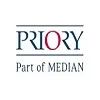Full Course
£110
£275Course Includes:
-
Online Study Mode
-
450 Hours
-
Study at your own Pace
-
Completion Certificate
Key Aspects of Course
-
Level 5 Diploma
-
Full Online Course
-
CPD Approved
-
Employer Approved
-
Fully Endorsed Course
-
450 Hours Training
-
No Entry Requirements
-
Boost Your Resume
-
Own Pace Study
-
Premium Course Material
-
Completion Certificate
£110
£275
Online PSYD Program
Gain a deeper understanding of human behaviour, thinking, and emotion with our Level 5 Diploma in Psychology—an ideal programme for anyone looking to build strong foundations in this fascinating field. Designed for flexible online study, this course offers a practical alternative to an Online PSYD Program, making advanced psychological learning accessible to learners worldwide.
As part of our Psychology Diploma Courses Online, you will explore key areas such as cognitive development, personality theory, mental health, behavioural science, and research methods. Each module is structured to give you both theoretical insight and real-world relevance, helping you apply psychological principles in personal, academic, or professional settings.
Whether you are preparing for further study, enhancing your career prospects, or simply passionate about understanding the mind, our Psychology Courses provide a valuable pathway. Begin your journey into modern psychology with a flexible and engaging diploma designed to support your long-term growth.
- Core psychological theories and concepts
- Cognitive and emotional processes
- Communication and counselling techniques
- Human behaviour analysis
- Research methods in psychology
- Application of psychology in real-world settings
this course
- Aspiring psychologists
- Counsellors and therapists
- Human resource professionals
- Educators and trainers
- Social workers
- Students pursuing psychology careers
SYLLABUS
Expected Psychology market growth by the end of 2027
Increased in growth in different learning organizations
Average Salary
£28k - £68k per Annum
Hiring Companies
Certifications
Frequently Asked Questions (FAQs)
Yes. Our Child Psychology Online Courses are fully flexible and self-paced, allowing you to study whenever your schedule permits with no deadlines to worry about.
Not at all. All child psychology distance learning courses are delivered 100% online, meaning you can complete your studies from home or any quiet space.
No hidden fees apply. The stated price includes tutor support, digital study materials, and registration. Optional certificates are available for an additional cost if selected.
Yes. Every student is assigned a dedicated tutor who provides ongoing academic support, clarification, and guidance throughout your chosen programme.
Absolutely. Our Online Child Psychology Courses are open to learners worldwide, with all content accessible remotely.
Yes. Our Child Psychology Courses start with fundamental concepts, making them suitable for beginners exploring the field for the first time.
You only need a device with Internet access. All study materials are provided digitally and included in your course fee.
Definitely. Our Child Psychology Online Courses are structured to explain theories, developmental stages, and behavioural concepts clearly through online modules and tutor-supported learning.
If you're just starting out, an introductory certificate is ideal. Learners seeking deeper understanding may prefer more advanced Online Child Psychology Courses for broader insight.
Yes. Completing one of our child psychology distance learning courses can strengthen your knowledge for roles in education support, childcare environments, and further psychology-related study.
Full Course
£110
£275Course Includes:
-
Online Study Mode
-
450 Hours
-
Study at your own Pace
-
Completion Certificate
Key Aspects of Course
-
 Full Online Course
Full Online Course -
 CPD Approved
CPD Approved -
 Employer Approved
Employer Approved -
 Fully Endorsed Course
Fully Endorsed Course -
 No Entry Requirements
No Entry Requirements -
 Boost Your Resume
Boost Your Resume -
 Own Pace Study
Own Pace Study -
 Premium Course Material
Premium Course Material -
 Completion Certificate
Completion Certificate
£110
£275




